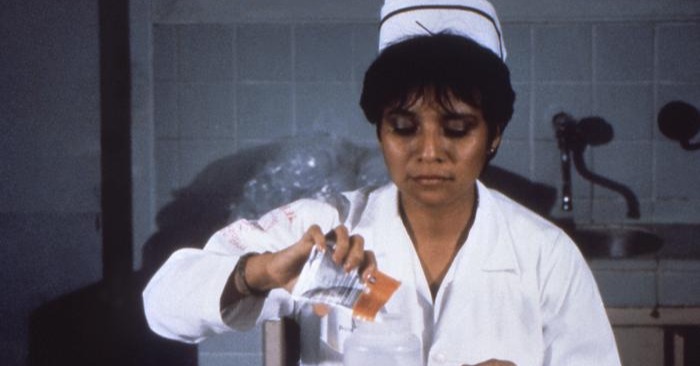
How Much Do Substance Abuse Social Workers Earn?
Top earners in substance abuse social work can earn over [...]

Mental health has always mattered; rarely has that been more evident than in the past few years, when the COVID-19 public health emergency has shone a spotlight on this oft-neglected healthcare field. In the face of increased uncertainty, isolation, and loss, more people have acknowledged their need for professional assistance in addressing mental health issues.
Unfortunately, the supply of trained professionals to provide the proper assessment, treatment, and mental health care has not kept up with the demand. According to an Archives of Psychiatric Nursing report, the US will need 250,000 mental health workers by 2025 to meet need, and the country is well short of that number. In fact, 96 percent of US counties will lack sufficient mental health professionals empowered to prescribe necessary medications.
Consider just one example: one community in Vancouver, Washington suffered a staffing shortage that resulted in increased waiting time for treatment and a reduced options for insured youth. Such shortages have a multiplier effect, increasing burnout rates of overburdened healthcare professionals and making it difficult to”recruit and retain an adequate amount of behavioral health staff.”
Family Solutions, a nonprofit mental health agency in Vancouver, rallied for federal funding to address the mental health crisis. Part of the funding will help rebuild its workforce, serve more clients, and collaborate with local providers. Fortunately, communities and governments are recognizing the need to train more behavioral health professionals, including social workers, psychiatrists, psychologists, advanced practice registered nurses (APRNs), and specifically psychiatric mental health nurse practitioners (PMHNPs).
So, how long does it take behavioral health professionals—such as psychiatric mental health nurse practitioners (PMHNPs)—to gain the essential skills and competencies to help fill this void? This article discusses how long it takes to become a psychiatric mental health nurse practitioner and answers the following questions:
Becoming a psychiatric mental health nurse practitioner (PMHNP) takes time, dedication, education, years of experience, licenses, and board certifications. Aspiring PMHNPs can expect between 8 and 11 years from the moment they start their nursing degree program to the time they become eligible to sit for their board certification exam.
A psychiatric mental health nurse practitioner (PMHNP) falls under the advanced practice registered nurse (APRN) umbrella. These highly trained professionals provide care and treatment to individuals, families, groups, and communities dealing with mental illnesses or behavioral disorders. The services they provide throughout the lifespan, from childhood to senior care, include:
PMHNPs work as full-practice nurse practitioners (NPs) in some states, while others have limited or restricted practice. Full practice—the model recommended by the National Academy of Medicine and the National Council of State Boards of Nursing—includes more extensive duties such as evaluating patients, prescribing medications, and initiating and managing treatments without oversight from a medical physician.
According to the US Bureau of Labor Statistics (BLS), the job outlook for advanced practice registered nurses (APRNs) is on pace to grow 45 percent throughout the decade, significantly faster than the average rate for all occupations. Family nurse practitioners (FNPs) , adult nurse practitioners (ANPs), and adult-gerontology nurse practitioners (AGNPs) make up the majority of licensed nurse practitioners.
While less than five percent of nurse practitioners carry the PMHNP-BC credential, psychiatric mental health nurse practitioners are the second-largest group of behavioral health professionals. PMHNPs work in a variety of settings, such as:
With a career in such high demand, PMHNPs earn a lucrative salary. The average base salary for a PMHNP is $140,272 per year, with the potential for higher incomes based on education, years of experience, geographic location, and focus area within psychiatric mental health. PMHNPs can specialize in child and adolescent mental health, gerontological-psychiatric care, military mental health, and additional categories.
Becoming a board-certified psychiatric mental health nurse practitioner won’t happen overnight. The journey requires a nursing education, a registered nurse (RN) license, years of clinical experience, an advanced nursing degree, and additional supervised clinical hours. If you’re starting from scratch, the process can take up to 11 years to complete:
Once you’ve completed the steps above, you can apply for the Psychiatric-Mental Health Nurse Practitioner Certification (PMHNP-BC) exam provided by the American Nurses Credentialing Center (ANCC). However, before doing so, you will need to meet all the eligibility requirements:
The PMHNP-BC exam consists of 175 questions (25 unscored pretest questions) with 3.5 hours to complete. Most questions are multiple-choice and test your knowledge of scientific foundation, advanced practice skills, diagnosis and treatment, psychotherapy and related theories, and ethical and legal principles.
You can choose between two less time-consuming options if you’re already working as a nurse practitioner in a different specialization. One option is to pursue an entry-level role in psychiatric-mental health and take continuing education courses related to the field. Alternatively, you can choose to obtain an advanced degree from a psychiatric mental health nurse practitioner program for a more structured educational experience.
PMHNP Master of Science in Nursing (MSN) programs cover a combination of foundational and in-depth, comprehensive coursework paired with supervised fieldwork education. In addition, these nursing programs prepare future practitioners to apply a holistic approach, healing the “whole person” when assessing, diagnosing, treating, and evaluating patients across the lifespan. A PMHNP MSN is necessary for individuals seeking more extensive responsibilities within advanced practice nursing roles.
Top PMHNP MSN programs, such as those found at Duke University, University of North Carolina, and New York University, have master’s programs that take at least two years to complete. Vanderbilt University offers a one-year program that includes three semesters of full-time study combined with field practicum requirements. While most schools have on-campus programs, the Yale University School of Nursing will launch its first online master’s degree program in summer 2023, providing flexible part-time options for registered nurses. This option is in addition to their existing on-campus PMHNP program.
MSN admission requirements vary depending on the program. However, most MSN programs require:
Additional prerequisites for PMHNP MSN programs include:
A PMHNP MSN program equips future practitioners with the advanced knowledge and evidence-based practice to perform extensive duties in psychiatric-mental health care. Many students who enroll in PMHNP programs already have the fundamental knowledge and years of clinical experience under their belt. Therefore, students can expect advanced level, comprehensive coursework that will delve into complex focused areas, such as:
The mental healthcare field continues to grow. However, to close the gap between the demand for trained behavioral health professionals and the expected job growth in this field, qualified and trained professionals are a critical need to ensure individuals, families, groups, and communities receive the necessary assessment and care.
Questions or feedback? Email editor@noodle.com

Top earners in substance abuse social work can earn over [...]

Education requirements for nurses in the U.S. are becoming more [...]

Nurse practitioners (NPs) typically earn six figures, but NP salaries [...]

Becoming a nurse practitioner can be arduous. The journey requires [...]

A Doctor of Nursing Practice (DNP) degree qualifies you for [...]
Categorized as: Advanced Practice Nursing, Nursing & Healthcare